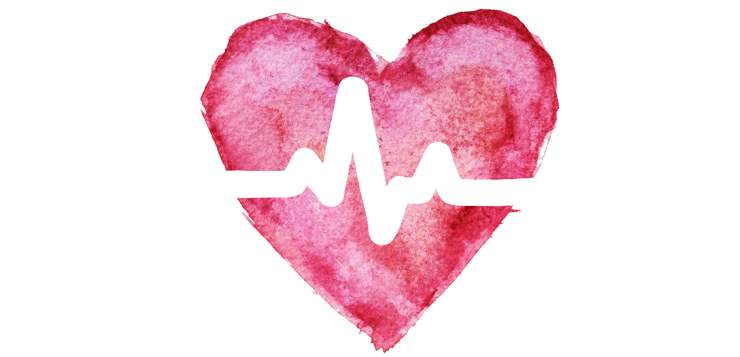All of us want our doctors to treat us with care. But the rigorous, high-stress training provided by medical schools seems to zap students of empathy for patients and well-being, making it less likely that these students will morph into compassionate caregivers later on.
Now, a new study suggests a potential remedy for overly stressed medical students: compassion training.
Caregivers Learn Cognitively-Based Compassion Training (CBCT)
Researcher Jennifer Mascaro and colleagues from Emory University randomly assigned volunteer second-year medical students to either 10 weeks of Cognitively-Based Compassion Training (CBCT) or to a waitlist.
The training, based on the Tibetan Buddhist practice of lojong, consists of cognitive exercises that strengthen students’ attention and explore the nature of suffering—how it arises in ourselves and others, of human interdependence, and of the randomness of labels that we assign to other people (e.g., friend vs. enemy vs. stranger). Ideally, the exercises inspire compassion: a naturally emerging desire to do things to help others relieve their suffering.
Before and after the training, students were asked to fill out various questionnaires related to their compassion levels, personal health, and well-being.
Results showed that students on the waitlist experienced declines in compassion similar to those found in past studies. However, students in the CBCT training did not experience reduced compassion, and they reported less depression and loneliness than students on the waitlist. In fact, those students who entered the year with the highest levels of depression seemed to benefit most from the compassion training.
Students who entered the year with the highest levels of depression seemed to benefit most from the compassion training.
According to Mascaro, these results lend support to the idea that CBCT could help physicians to stay compassionate toward their patients while maintaining personal well-being.
“It’s not the ability to be empathic or compassionate that leads to suffering depression or burnout in physicians; it’s the opposite—the blocks to compassion and empathy—that lead to suffering,” she says.
There’s a “hidden curriculum” in medical school endorsing the idea that physicians need to harden their hearts and not get too close to the suffering around them or they’ll burn out, says Mascaro. But teaching compassion is a powerful antidote, because it allows physicians to keep their hearts open without becoming overwhelmed.
How Managing Stress Improves Care
Interestingly, students in the study who went through the program did not report decreased levels of stress, suggesting that CBCT is not about stress reduction, per se, but about a more sustainable way of managing it. Also, some of the medical students reported that CBCT didn’t seem effective for them, even though their survey results showed reduced depression and loneliness and increased compassion, says Mascaro.
CBCT is different from other meditation strategies like loving-kindness meditation, where compassion is trained more directly, or mindful breathing practices directed at stress reduction. Mascaro believes CBCT allows physicians to not simply reduce stress or decrease emotional contagion with suffering patients, but to specifically increase their motivation to care. In the Buddhist tradition, compassionate emotions naturally arise when you understand the meaning of suffering and our connection to all human beings.
In other words, CBCT could benefit doctors-to-be without them even realizing it.
CBCT is different from other meditation strategies like loving-kindness meditation, where compassion is trained more directly, or mindful breathing practices directed at stress reduction. Mascaro believes CBCT allows physicians to not simply reduce stress or decrease emotional contagion with suffering patients, but to specifically increase their motivation to care. In the Buddhist tradition, compassionate emotions naturally arise when you understand the meaning of suffering and our connection to all human beings.
“It’s clear from existing research that physician empathy (caring concern) impacts patient outcomes, impacts patient adherence to treatment plans, and decreases malpractice suits,” says Mascaro. “Our expectation is that if we assessed patient outcomes for these medical students who’ve been through CBCT, we would find really positive downstream effects.”
There is a lot more research needed to tease out these claims, though, and Mascaro is interested in further studying CBCT’s potentially unique impacts. She thinks it’s important when researching meditation-like programs to see how they interact with other aspects of a healthy lifestyle (like exercising, which actually decreased among CBCT participants in this study) and to rule out other explanations of the results. For example, she can’t say for sure if simply meeting regularly with a group of other students seeking compassion training or being part of an institution that clearly values compassion could have played a role in this study’s positive outcomes.
For those reasons and others, Mascaro would not yet recommend CBCT for everyone in medical school. But she does see it as a potentially useful intervention that could be part of a buffet of wellness programs intended to maintain wellness and to fight off compassion decline in medical students.
“Almost half of the student population voluntarily enrolled in this study,” says Mascaro. “That suggests to me that there is a hunger for alternative programs that impact well-being.” And, it seems, offering these to our future doctors could be a winning proposition for patients as well.







